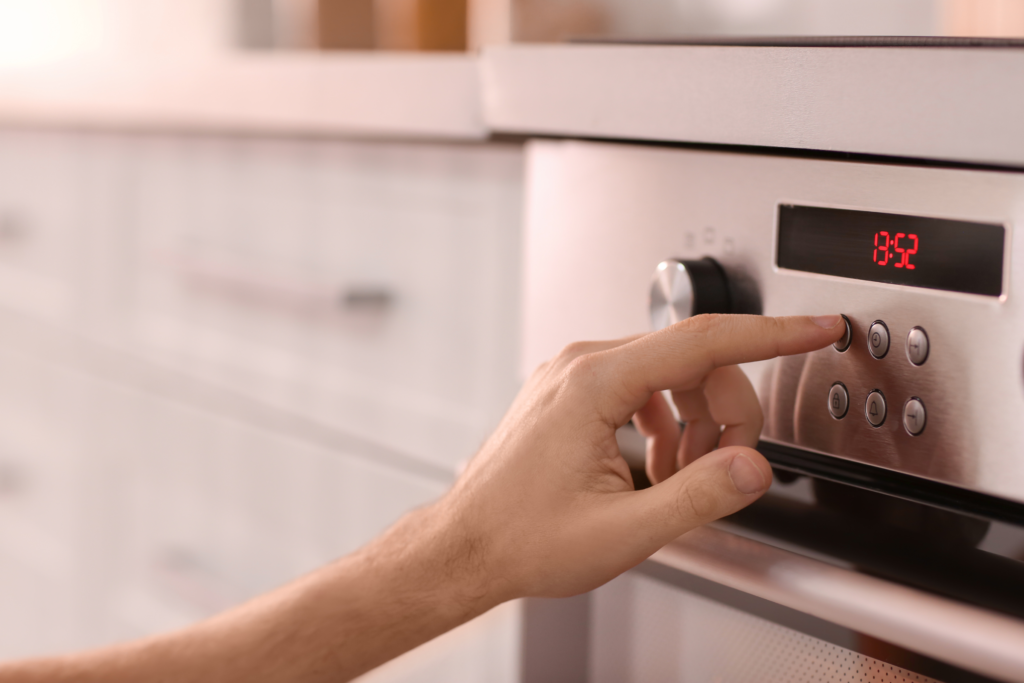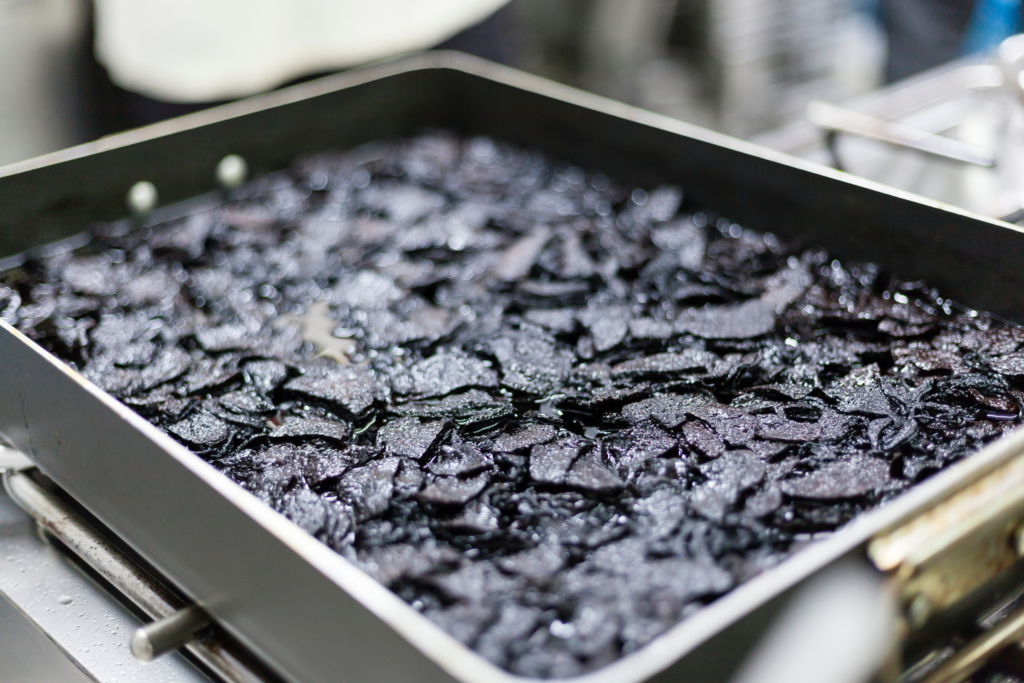Is It Safe To Leave the Oven On and Go Out? (6 Dangers)
Picture this: you just put food in the oven but realize you need extra ingredients for a side dish. So, you leave the oven on and run to the store. Is it safe to do that?
It’s unsafe to leave the oven on and go out because it’s a fire hazard, your food could burn, and you risk carbon monoxide poisoning. It’s okay to leave an oven on for a long time to cook something, but you should never leave it unattended.
We’ll address the question, “Is it safe to leave the oven on and go out for a stroll or do something else?” Read to learn more.
Is it safe to leave the oven on and go out?
Home cooking safety is essential and can protect you, your home, and your family. Is it safe to leave the oven on and go out?
It is generally unsafe to leave the oven on and go out because it’s hazardous. Unattended ovens can cause a house fire, a gas oven can release poisonous carbon monoxide into the home, or burn food. These hazards are more likely if no one is home to monitor the oven safely.
The best-case scenario for leaving the house with the oven on is that nothing happens or you burn your food.
Otherwise, the oven can catch fire and cause severe damage to, or worse, destroy, your home. This can happen to anyone, which is why you should never leave the house with the oven on.
That’s not to say that using your oven for hours at a time is dangerous.
It’s okay to cook food like ribs, where you might need to leave your oven on for a long time. What matters most is that you keep a close eye while cooking with home appliances like ovens, a toaster oven, or other cookers.
How long can you leave an oven on with nothing in it?
We don’t recommend leaving an oven on with nothing in it. But maybe you accidentally left the oven on overnight or preheated it and fell asleep. How long can you leave the oven on with nothing in it?
Some say it’s safe to keep it on for up to 12 hours, but that much time is enough to increase carbon monoxide levels or start a house fire unknowingly.
You should never leave an oven on with nothing in it unless you’re preheating it for a few minutes before you start cooking. Leaving an empty oven on can cause a fire or a lethal rise in your home’s carbon monoxide levels.
Toxic levels of carbon monoxide have adverse health effects, including fatigue, dizziness, headaches, passing out, or even death.
Furthermore, the heat generated inside the oven with nothing it in can ignite fumes and cause a fire.
If you’re sleeping or out of the house for a long time, whether there’s something in your oven or not, you risk exposing yourself to an unhealthy amount of carbon monoxide or starting a house fire.
The safest thing to do is to set a timer for the oven or turn it off yourself when you’re done using it.

Will my oven turn off automatically?
Most newer ovens turn off automatically to try to avoid home cooking fires, but that’s not the case for all of them.
Your oven will turn off automatically after 12 hours if it has an auto-shutdown feature. The easiest way to check for that feature is to read the owner’s manual. If your oven has a built-in timer, it likely has a built-in shutdown feature to turn it off after 12 hours of cook time.
The owner’s manual is the most reliable place to check for an auto shutdown feature.
Another area to look at is the manufacturer’s official website. Paste the serial number on the website, and you’ll find details about your oven model.
Not all oven models turn off automatically. You have to check and be sure yours has this feature.
Can you get carbon monoxide poisoning from leaving the oven on?
You can get carbon monoxide poisoning from leaving the oven on. Your home’s CO levels will rise the longer the oven is on. CO levels above nine parts per million over eight hours can cause carbon monoxide poisoning, resulting in dizziness, fatigue, headaches, or even death.
Here are a few tips for detecting high carbon monoxide levels
- Look for condensation on your windows
- The pilot light might blow out frequently
- Floppy orange or yellow flames instead of the normal blue ones on your stovetop
- Sooty or dark stains in your oven.
This gas is highly poisonous. It can cause serious adverse health effects and even death.
It is crucial to check if the appliance is faulty before turning it on or during every use.
Can just leaving the oven on actually start a fire?
If your oven isn’t faulty, you can leave it on for several hours, and nothing will happen. But if it’s defective, it could start an oven fire or stop working entirely.
Leaving the oven on can start a fire if there is food inside that gets too hot and ignites. Likewise, a range can catch fire if left on without anything in it for too long. Avoid starting a fire by using the oven as directed.
Remember that if you aren’t home when a fire breaks out, it will take a long time for the fire department to come to your home to help.
The grease buildup in the oven is flammable and could start a fire at a high temperature. But as we said earlier, most new ovens have built-in safety features. Thus, the possibility of creating a fire is reduced if your device isn’t faulty.
Stats and figures about oven home appliance house fires
What are the potential consequences of leaving a gas stove or oven on while you leave?
Well, kitchen fires, your smoke alarm going off, and damage to your home.
According to the National Fire Protection Association (NFPA), in 2018, there were an estimated 166,100 reported home structure fires in the United States, with cooking equipment being the leading cause of home structure fires (45%) and associated civilian deaths (43%).
In the same year, an estimated 5,400 reported home structure fires were caused by ovens, stoves, or ranges, resulting in an estimated annual average of 10 civilian deaths, 130 civilian injuries, and $240 million in direct property damage.
According to the NFPA, unattended cooking was the leading contributing factor in the home structure fires caused by ovens, stoves, or ranges (47%).
In 2018, an estimated 1,100 reported home structure fires were caused by leaving the cooking unattended, resulting in an estimated annual average of 10 civilian deaths, 90 civilian injuries, and $170 million in direct property damage.
6 potential dangers of leaving your electric oven on
You might be wondering what happens if you leave the oven on and run a few errands. When it comes down to it, you should never leave your oven unattended.
Here are six reasons not to leave your oven on:
- It’s a fire hazard
- Your food will burn
- Carbon monoxide poisoning
- Damage to the heating coil
- Shorting out
- Personal injury
It’s a fire hazard
You risk starting a house fire if you leave food inside your oven unattended.
Food left in the oven for too long with burn and eventually catch fire. The fire can spread from your range to the rest of your kitchen or home. Avoid this fire hazard by monitoring your oven while it’s on.
Also, always keep a fire extinguisher in your kitchen near the oven.
Your food will burn
Your food will continue cooking until the oven’s power supply goes off or someone turns it off. In a best-case scenario of leaving your oven on and going out, the food will burn or turn to ashes without starting a fire. Just like cooking fires, fires can start inside an oven once food residue, grease, and other debris burns and eventually ignites.
Burnt food is unsafe to eat and can cause unpleasant smells in your oven or home.
Some recipes are safe to cook in an oven for a long time, but try not to leave the house while cooking them.

Carbon monoxide poisoning
Carbon monoxide levels in your home should not surpass nine parts per million over eight hours, according to the EPA.
Gas ovens produce carbon monoxide. As a result, your home’s CO levels increase as the oven is on. If you leave the house for too long with the oven on, CO levels could potentially rise to a toxic and even deadly amount.
Most people leave their oven on and open its door to provide heat during winter. Many believe it’s the cheapest way to warm and make their property comfortable.
It is essential to warm up your room at this point. But the question is this. Are you doing the right thing? No! It is important to use your oven for the intended purpose while you’re around and turn it off after use.
It is wrong to leave an oven on for an extended period.
Damage to the heating coil
Leaving your oven on for an extended period could damage the heating coil or heating element. An inefficient heating coil means an inefficient oven; if you don’t replace the coil, it will take longer to cook food in the oven, resulting in a higher gas or electric bill.
Although heating coils are replaceable, you can avoid spending extra cash by not leaving your oven on longer than needed.
Shorting out
Your oven can short-circuit when left on for an extended period. What does this mean? It means a particular portion is no longer well-insulated and exposed. And those exposed parts could touch each other, causing a disaster.
Personal injury
Leaving your oven on for a long time is dangerous. The appliance could start a fire when there’s food left inside. Also, it can cause burns if you touch the oven without realizing it’s been left on.
Check to see if the oven is hot before opening or touching it.
Summary of Is it safe to leave the oven on and go out?
No, it’s not safe. You can see the dangers of leaving an oven unattended while cooking.
It’s dangerous because there’s a chance the oven could start a fire or cause carbon monoxide poisoning. So, monitor your oven while it’s in use and never leave it unattended.
Some models have automatic shutdown and allow users to set the cooking time, but that doesn’t mean you can leave the oven unattended.
Let Us Know How We’re Doing!
Did this expertly prepared resource answer your question?
Do you have another question about home maintenance, home improvement projects, home appliance repair, or something else?
Get more information, send in questions and keep the discussion going by contacting the I’ll Just Fix It Myself company customer service team at at 1-800-928-1490 or Email us at [email protected]
